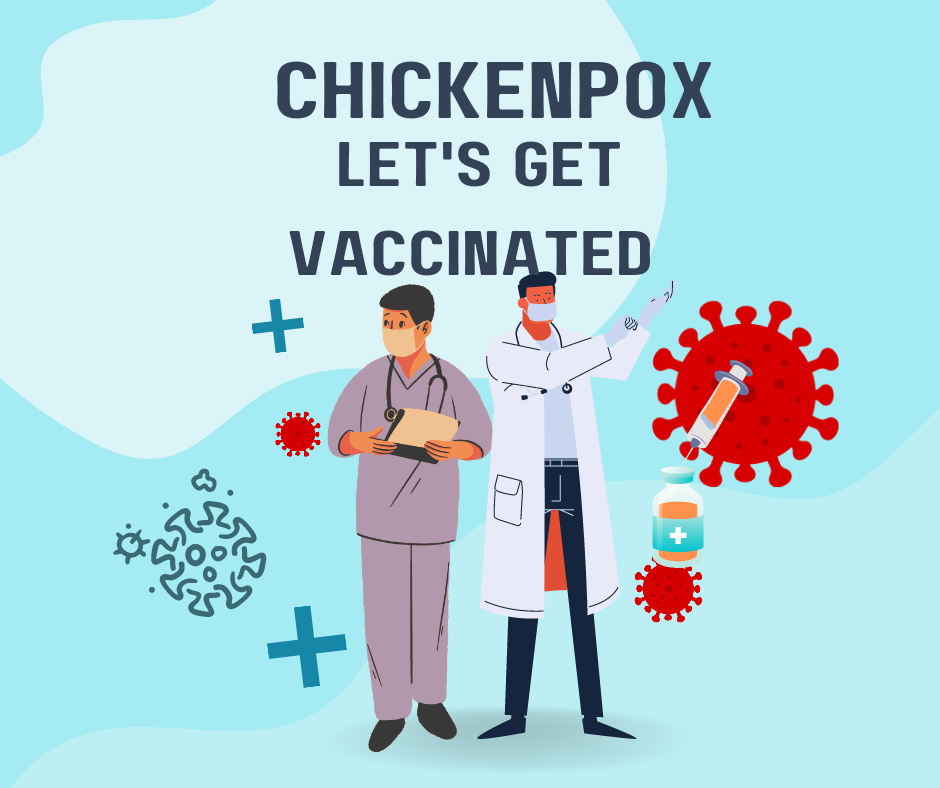chickenpox, chickenpox symptoms ,chickenpox vaccine , adult chickenpox, chickenpox medication , chickenpox selfcare, signs of chickenpox , treatment for chickenpox . Learn about the symptoms, causes, and treatment of chickenpox in our comprehensive guide.”
Introduction : what is chickenpox?
Chickenpox, also known as varicella, is a highly contagious viral infection that primarily affects children but can also occur in adults who haven’t been exposed to the virus before. Although it is typically a mild disease, chickenpox can lead to complications in some cases.
Causes of chickenpox
Chickenpox is caused by the varicella-zoster virus, which is member of herpes virus family. An infected person can transmit the virus to others through coughing, sneezing, or direct contact with the chickenpox rash. The virus can also be contracted by touching objects or surfaces contaminated with the virus.
Chickenpox symptoms :
The first symptoms of chickenpox appear 10-21 days after exposure to the virus.These symptoms may include:
Fever: Chickenpox often begins with a mild to moderate fever, which can persist for several days.
Fatigue: Patients may experience tiredness and general weakness.Loss of Appetite: A reduced appetite is common during the illness.
Headache: Headaches are a frequent complaint among those with chickenpox.
Sore Throat: Some individuals may have a sore throat before the rash appears.
Rash: The most distinctive symptom of chickenpox is the characteristic red, itchy rash that typically starts on the face, chest, and back before spreading to other parts of the body.
Fluid-filled Blisters: The rash develops into small, fluid-filled blisters that eventually crust over and form scabs.
The rash usually appears 1-2 days after the other symptoms start. It begins as small, red bumps that quickly turn into fluid-filled blisters. The blisters can appear anywhere on the body, but they are most common on the face, chest, back, and stomach. The blisters will eventually crust over and fall off, usually within 10-14 days.
Chickenpox Treatment :
There is no specific treatment for chickenpox. The virus usually goes away on its own within 10-14 days. However, there are things you can do to make infected person more comfortable during this time, such as:
1 Rest: Rest is crucial during the chickenpox infection, as it helps the body recover more quickly.
2 Give them over-the-counter medications to reduce fever and pain, such as ibuprofen or acetaminophen.
3 Give cool compresses or calamine lotion to the rash to help relieve itching.
4. Maintain Hydration: Drink plenty of fluids to prevent dehydration, especially if the fever is high.
5. Dress them in loose, comfortable clothing.
6 Avoid giving them aspirin, as this can increase their risk of developing a serious complication called Reye’s syndrome.
Complications :
While chickenpox is generally a mild illness, it can lead major complications in certain populations:
Secondary Infections: Scratching the rash can lead to bacterial skin infections.
Pneumonia: In some cases, chickenpox can lead to pneumonia, especially in adults.
Encephalitis: This is a rare but serious complication involving brain inflammation.
Prevention:
1 chickenpox Vaccine : The most effective way to prevent chickenpox is through vaccination. The varicella vaccine is safe and highly effective, and it is recommended for children and adults who haven’t had chickenpox.
2. Isolation: Infected individuals should be isolated to prevent the spread of the virus, especially to those who are at higher risk of complications.
3. God Hygiene: Practicing good hygiene, such as regular handwashing with soap can decrease the risk of infection.
Conclusion :
Chickenpox is a common childhood illness that can be prevented through vaccination. While it is usually mild, it’s important to take precautions to avoid complications and reduce the risk of spreading the virus to others. If you or your child develops chickenpox symptoms, consult a healthcare professional for proper guidance and care. Remember, prevention is the best approach when it comes to chickenpox.
What is the reason of chicken pox?
Chickenpox is caused by the varicella-zoster virus.
How many days will chicken pox last?
The rash caused by chickenpox appears 10 to 21 days after you’re exposed to the varicella-zoster virus. The rash often lasts about 5 to 10 days. Other symptoms that may appear 1 to 2 days before the rash
How chickenpox is spread?
Chickenpox is transmitted from person to person by directly touching the blisters, saliva or mucus of an infected person.
What foods should be avoided with chicken pox?
Foods to Avoid During Chickenpox
Spicy and Oily Foods. Spicy and oily foods, in particular, can worsen itching and irritate the skin .
Excess Sugar and Processed Foods.
Does chicken pox leave scars?
Even a single occurrence of chickenpox can leave long-lasting scars on almost every part of your body

